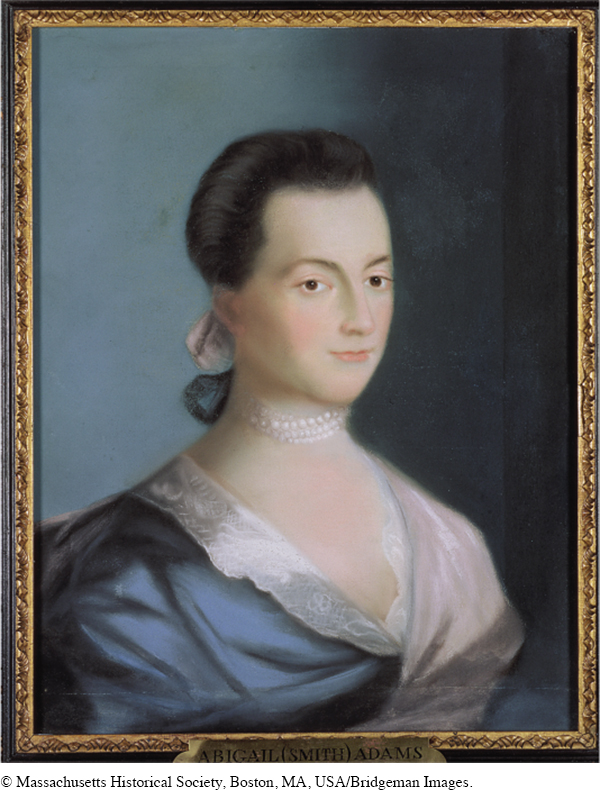The American Promise: Printed Page 177
The American Promise, Value Edition: Printed Page 163
The American Promise: A Concise History: Printed Page 188
Patriotism at the Local Level
The American Promise: Printed Page 177
The American Promise, Value Edition: Printed Page 163
The American Promise: A Concise History: Printed Page 188
Page 177Committees of correspondence, of public safety, and of inspection dominated the political landscape in patriot communities. These committees took on more than customary local governance; they enforced boycotts, picked army draftees, and policed suspected traitors. They sometimes invaded homes to search for contraband goods such as British tea or textiles.
Loyalists were dismayed by the increasing show of power by patriots. A man in Westchester, New York, described his response to intrusions by committees: “Choose your committee or suffer it to be chosen by a half dozen fools in your neighbor-
Another group new to political life—

Women from prominent Philadelphia families took more direct action, forming the Ladies Association to collect money for Continental soldiers. Mrs. Esther DeBerdt Reed, wife of Pennsylvania’s governor, published a broadside in 1780 titled “The Sentiments of an American Woman” to defend their female activism: “The time is arrived to display the same sentiments which animated us at the beginning of the Revolution, when we renounced the use of teas [and] when our republican and laborious hands spun the flax.”